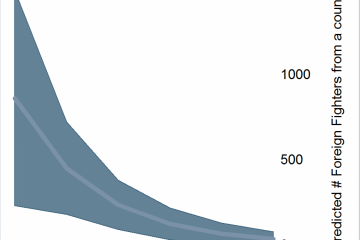What if We Talked about Foreign Policy? Italy’s Opportunities for Global Leadership in 2021
After the Cold War and the fall of the First Italian Republic, Italy struggled to formulate a coherent foreign policy strategy. Generally, foreign policies at global level during the Cold War era were dictated by the bipolar relationship between the United States and the Soviet Union. Italian foreign policy, therefore, was a function of the United States’ sphere of influence and interests, and Italy was often a bridge and interlocutor for the Americans to the Middle East or Eastern Europe. With the collapse of the bipolar system and the disintegration of the major Italian political parties that were the core political actors in the aftermath of World War Two, Italian foreign policy was partially dictated by individual figures and was …
Italy’s Other Wave: Protests during the Second Lockdown
Italy was the first Western democracy to impose a country-wide lockdown in response to the COVID-19 pandemic. Despite successfully curbing the number of infections in the first half of 2020, Italy saw its cases increase again in October, prompting Prime Minister Giuseppe Conte and local governments to announce new restrictions to curb the cresting second wave. Despite the clear memory of the significant death toll and warnings of the dangerous winter to come, however, these announcements have been met with opposition. On the evening of the 23rd October, thousands gathered in the streets of Naples to protest against the forced closure of shops and restaurants and the threat of a local lockdown. A group of about 300 people—including youth, extremist political groups, and football hooligans—escalated into a violent protest, attacking police officers, burning cars, and vandalizing private …

Here’s a paradox: Shutting down the Islamic State on Twitter might help it recruit
After the tragic events in Paris, the group Anonymous hacked and shut down 5,000 Twitter accounts held by Islamic State sympathizers, with a great deal of media attention. But Twitter itself and various security agencies (including Europol) had already been using similar strategies to limit the group’s followers’ ability to spread propaganda via social networks. Clearly their main and common aim was to neutralize the Islamic State’s ability to use Twitter to reach far beyond its own narrow audience, and to reduce the violent radicals’ ability to manipulate public opinion and attract new recruits and sympathizers. This article was first published in the Monkey Cage at The Washington Post on 10th December 2015. Please visit the Washington Post website to read the rest …










